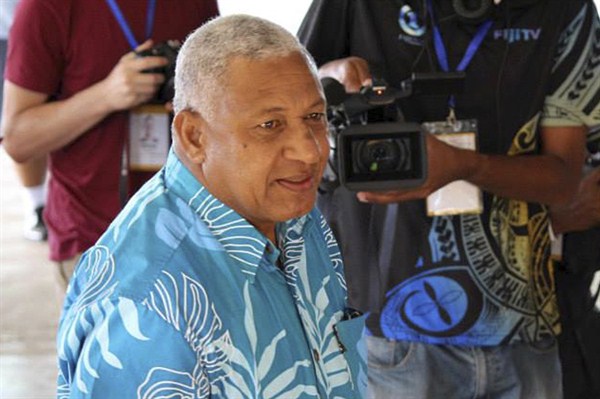Earlier this month, Fiji’s military chief, Mosese Tikoitoga, resigned, saying he wanted to start a career in the foreign service, raising questions about the state of civil-military relations in the Pacific island country, which has experienced four coups d'état since 1987, most recently in 2006. In an email interview, Vijay Naidu, professor at the University of the South Pacific, discussed Fiji’s domestic politics.
WPR: How stable is Fiji's government, and what is the state of democracy in Fiji?
Vijay Naidu: The government is stable, with the ruling Fiji First Party maintaining an overwhelming majority in parliament with 32 members. There are 18 opposition members of parliament. The executive branch is cohesive, with tight control over Cabinet ministers.

